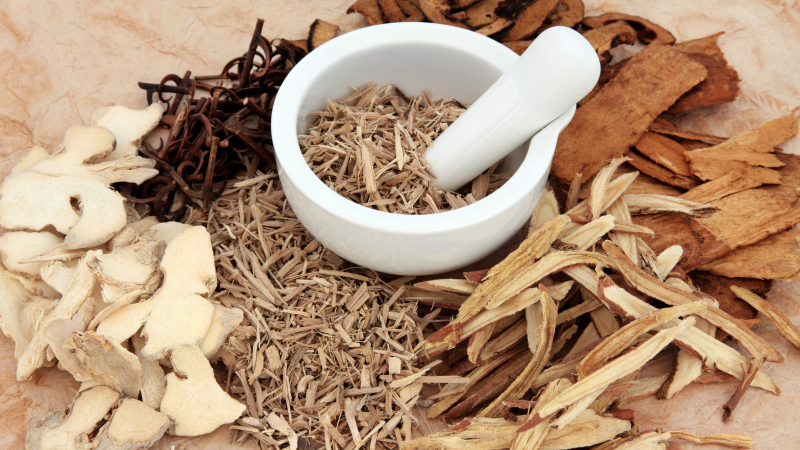
Siddha is one of the oldest systems of medicine originating from South India, particularly associated with Tamil culture and language. It is a traditional holistic healing system that emphasises the balance of the mind, body, and spirit, and is rooted in ancient philosophical and spiritual teachings. Siddha medicine is based on the concept of maintaining harmony with the natural world and using natural substances (herbs, minerals, metals) to restore health and balance.
Origins of Siddha Medicine
The term "Siddha" comes from the Tamil word "Siddhi", which means accomplishment or perfection. The system is believed to have been developed by ancient Siddhars (spiritual adepts or enlightened beings), who were skilled in both spiritual practices and medicinal knowledge. These Siddhars were revered for their deep understanding of the body, the mind, and the universe.
Some of the famous Siddhars include:
- Agastya
- Patanjali
- Bogar
- Kovai
- Vagai Maran
Core Principles of Siddha Medicine
-
The Five Elements (Pancha Bhootas): Siddha medicine is built on the idea that the human body is made of the same five basic elements that make up the universe—earth, water, fire, air, and ether (space). Each of these elements corresponds to certain physiological processes in the body. Disease arises when these elements are out of balance.
-
The Three Humors (Vatham, Pitham, and Kapam):
- Vatham (Vata): Represents the air element, responsible for movement and circulation in the body.
- Pitham (Pitta): Represents the fire element, associated with metabolism, digestion, and energy production.
- Kapam (Kapha): Represents the water and earth elements, responsible for stability, structure, and fluid balance in the body.
Health is maintained when these three humours are in balance. Disease occurs when one or more of them become imbalanced, leading to physical, mental, or emotional distress.
-
The Theory of the Seven Body Components (Dhatus): Siddha medicine describes seven essential components that form the body:
- Rasa (lymph or plasma)
- Rakta (blood)
- Mamsa (muscles)
- Meda (fat)
- Asthi (bone)
- Majja (bone marrow)
- Shukra (semen or reproductive fluid)
Proper functioning of these Dhatus is crucial for maintaining health and vitality.
-
Excretion and Detoxification (Malas): The waste products of metabolism (such as sweat, urine, and feces) are also integral to maintaining health. Any imbalance in the excretory processes can lead to diseases.
-
Spiritual and Mental Health: Siddha emphasises the interconnectedness of mental and spiritual well-being with physical health. Practices like meditation, yoga, and prayer are seen as integral to healing and maintaining balance in life.
Key Components of Siddha Medicine
-
Herbal Medicine: Siddha medicine uses a vast variety of herbs, plants, and minerals for therapeutic purposes. These herbs are carefully prepared using specific processes like kashayams (decoctions), choornams (powders), and pills (often called vatis).
-
Mineral and Metal Medicines: Unique to Siddha is the use of purified metals and minerals (like mercury, sulfur, gold, and copper) in various formulations. The proper preparation of these metals and minerals is an important aspect of Siddha medicine, as they are believed to have potent healing properties when used correctly.
-
Panchakarma (Detoxification): Siddha uses various detoxification techniques, similar to Panchakarma in Ayurveda, to cleanse the body of accumulated toxins. These include:
- Vamana (induced vomiting)
- Virechana (purgation)
- Basti (enema)
- Nasya (nasal administration of medicine)
- Raktamoksha (bloodletting)
-
Yoga and Pranayama: Siddha medicine includes yoga and breathing techniques (pranayama) as part of treatment. These practices help in balancing the energies in the body, calming the mind, and improving the overall flow of life force or prana.
-
Dietary Adjustments: Diet plays a significant role in Siddha healing, with a focus on natural, local, and balanced foods. The types of foods consumed depend on a person's dosha (humor) balance and any existing imbalances in the body.
Common Treatments in Siddha Medicine
- Herbal Decoctions (Kashayams): These are often prescribed to treat common ailments like cough, fever, digestive issues, and inflammation.
- Powders (Chooranam): Medicinal powders are applied externally for wound healing, or consumed for various internal conditions.
- Lehiyams: Thick herbal pastes used to treat digestive disorders, respiratory issues, and to boost immunity.
- Ointments (Thailams and Kuzhambu): Applied topically for conditions like arthritis, skin disorders, and muscle pain.
- Oil-based Treatments (Thailams): Oils infused with herbs are often used for external applications or massages to treat muscular pain, skin conditions, and improve circulation.
Siddha and Preventive Medicine
Siddha medicine is heavily focused on preventive care. It promotes a balanced lifestyle that involves:
- Herbal preparations that maintain immunity and prevent common ailments.
- Rituals and spiritual practices to maintain mental health.
- Daily routines that harmonise physical health, such as proper sleeping patterns, moderate exercise, and balanced diet.
Popular Siddha Herbs
- Thulasi (Holy Basil): Used to purify the body and improve immunity.
- Turmeric: For its anti-inflammatory and healing properties.
- Ginger: Used to treat digestive issues and inflammation.
- Neem: Known for its detoxifying properties and used in skin care.
- Amla (Indian Gooseberry): Strengthens the immune system and prevents common illnesses.
The Role of Siddha Practitioners
Siddha practitioners, known as Vaithiyars or Siddhars, are trained in the ancient texts and possess deep knowledge of herbs, minerals, and the human body. They use diagnostic methods like:
- Pulse diagnosis (Nadi Pariksha)
- Urine analysis (Uraiyal)
- Tongue examination
- Observation of physical symptoms
The Vaithiyars are not only healers but are also spiritual guides, as they often integrate spiritual healing practices with physical treatments.
Siddha Today
While Siddha is primarily practiced in Tamil Nadu and parts of South India, it has spread to various parts of the world. With a growing interest in natural and holistic medicine, Siddha has garnered attention for its approach to preventing disease and promoting wellness.
In modern times, Siddha medicine continues to be practiced alongside other systems like Ayurveda and Homeopathy. Many Siddha-based remedies have found their place in complementary and alternative medicine, particularly in the fields of detoxification, mental health, and chronic disease management.
Conclusion
Siddha is a profound and comprehensive system of medicine that combines physical health with spiritual and mental wellness. Rooted in ancient wisdom, its practices are aimed at preventing disease, promoting longevity, and maintaining a balanced and harmonious life. Whether through the use of herbal medicines, spiritual practices, or personalised treatments, Siddha provides a holistic approach to health that is deeply connected to the natural world.
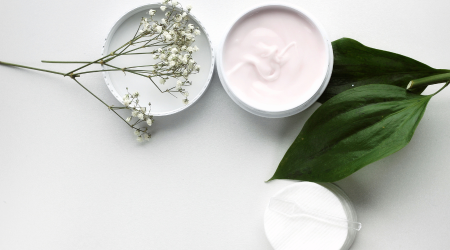





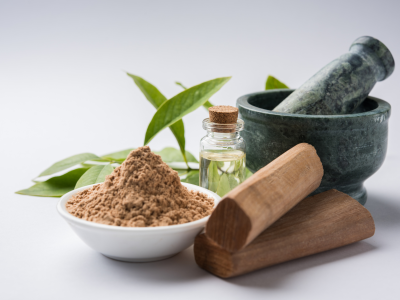
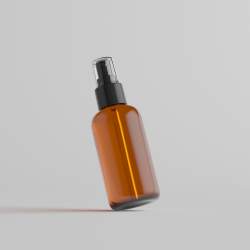



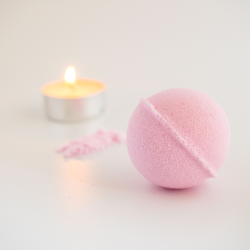





Leave a comment